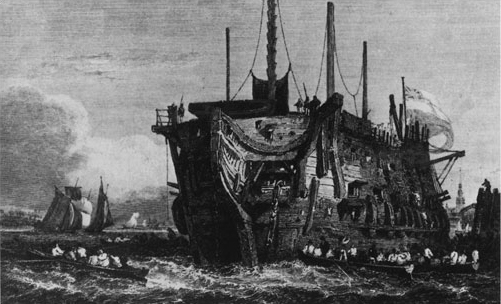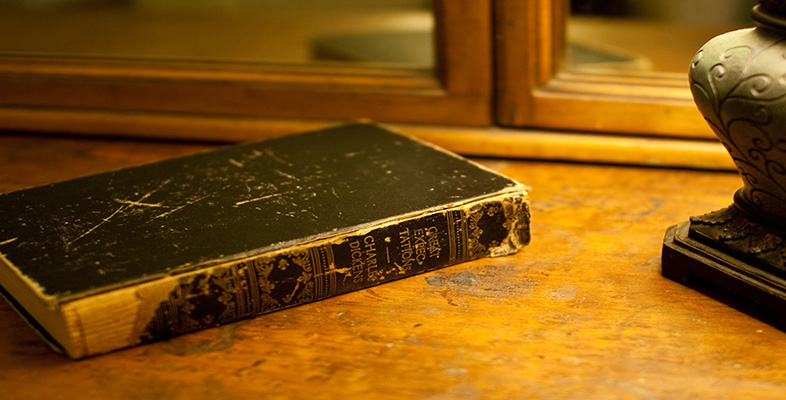4 Little Britain and the Empire
4.1 A changing society
Reading Great Expectations for its insights into the ways of the psyche does not mean that we should ignore its connections with its time or ours, or with the wider history of Britain in the world. As van Ghent pointed out, the intuition expressed in terms of Dickens's creation of a universe of reciprocal change, in which human and non-human become each other, took place at a time that witnessed
a full-scale demolition of traditional values … correlatively with the uprooting and dehumanization of men, women, and children by the millions – a process brought about by industrialization, colonial imperialism, and the exploitation of the human being as a ‘thing’ or an engine or a part of an engine capable of being used for profit. This was the ‘century of progress’ which ornamented its steam engines with iron arabesques of foliage … while the human engines of its welfare grovelled and bred in the foxholes described by Marx in his Capital.
According to this view, the class system depicted in the novel, and the great expectations it feeds on, are ultimately rooted in the reality of the prison hulks (Figure 3), the decay and murder that occupy the more or less hidden underground of the narrative. The most pointed irony of Pip's story is that the woman he falls in love with, and perhaps in the end joins, turns out to be the child of that dark and hidden reality.

Reading the novel in terms of its power as social statement or critique goes back at least as far as the work of two key figures mentioned earlier, George Orwell and Humphry House. House in particular established an influential interpretation of Great Expectations based upon a profound understanding of the nature of mid-Victorian British society. ‘Many people’, he said, ‘still read Dickens for his records and criticism of social abuses, as if he were a great historian or a great reformer’ (The Dickens World, 1965 edn, p.9). He went on to question this view, since the precise connection between Dickens's writings and the times in which they appeared, between his urge for reform and some of the things he wanted reformed, was far from clear-cut. Moreover, the Dickens that emerged from House's account of the novels, the journalism, and from much contemporary comment on the social and political issues that interested the novelist – from debtors’ prisons to child labour, from prostitutes to sanitation, from schools to religion – was a relatively conservative figure. This Dickens drew attention to conditions after others had noticed them, and proposed reform rather than revolution, insofar as he proposed anything at all. In Orwell's words, Dickens's criticism of society ‘is almost exclusively moral … There is no clear sign that he wants the existing order to be overthrown, or that he believes it would make very much difference if it were overthrown’ (Inside the Whale, 1940, in Wall, Charles Dickens, 1970, pp.297–8).
Such perceptions of Dickens continue to occupy the middle ground of Dickens criticism. Whether or not we accept them, the account of Great Expectations offered by House still deserves attention for its informed judgement of the novel as an expression of the phase of society in which it was written (not the imaginary dates of its plot). House says:
In the last resort [Dickens] shared Magwitch's belief that money and education can make a ‘gentleman’, that birth and tradition count for little or nothing in the formation of style. The final wonder of Great Expectations is that in spite of all Pip's neglect of Joe and coldness towards Biddy and all the remorse and self-recrimination that they caused him, he is made to appear at the end of it all a really better person than he was at the beginning. It is a remarkable achievement to have kept the reader's sympathy throughout a snob's progress. The book is the clearest artistic triumph of the Victorian bourgeoisie on its own special ground. The expectations lose their greatness, and Pip is saved from the grosser dangers of wealth; but by the end he has gained a wider and deeper knowledge of life, he is less rough, better spoken, better read, better mannered; he has friends as various as Herbert Pocket, Jaggers, and Wemmick; he has earned in his business abroad enough to pay his debts, he has become third partner in a firm that ‘had a good name, and worked for its profits, and did very well’. Who is to say that these are not advantages? Certainly not Dickens.
Activity 7
What do you think of House's account of Great Expectations? Which elements in the book appear to confirm what he says, and which do not?
Discussion
I would suggest that House's account is plausible as far as it goes – which is not far enough. Dickens does appear to approve Pip's achievement of respectable middle-class integrity by the end of the novel, telling us that he has worked hard and paid his debts, unlike the ‘false’ gentleman, Compeyson, who resorted to crime and betrayal. Although he relies on unearned wealth, Pip is not like Miss Havisham's dubious relatives, who ‘sponge on others’. Mrs Pocket's delusions of aristocratic grandeur go hand in hand with an inability to do anything remotely resembling work. In particular, we are encouraged to approve of ‘the only good thing I had done, and the only completed thing I had done, since I was first apprised of my great expectations’ (p.411), namely, Pip's secret arrangement to help Herbert Pocket obtain a place in a commercial venture. Pip's life of wealthy idleness is certainly shown up when the transported convict reappears to claim him and his ‘genteel’ manners are fully demonstrated. When we witness the silly drunkenness and womanizing of The Finches of the Grove (p.269) and Pip's insensitive behaviour towards Joe and Biddy, it is perhaps an achievement on Dickens's part to have maintained our sympathy through ‘a snob's progress’.
Is that all it is? Pip is never merely a snob, although much of the comedy of the novel is drawn from the superficial side of his aspirations. For example, when Pip arrives to select a suit appropriate for a young gentleman with expectations, the tailor Trabb's boy knocks his broom ‘against all possible corners and obstacles, to express (as I understood it) equality with any blacksmith, alive or dead’ (p.148). He later parodies Pip's ‘distinguished’ walk through his home town, by walking alongside, airily waving his hand and exclaiming ‘Don't know yah!’ to the delight of the spectators and Pip's deep embarrassment (pp.242–3). Pip's snobbishness brings misery, however, and his own continuous commentary upon it reveals as much and more. We are never allowed to forget that at the centre of the narrative there is a narrator who does not excuse or disguise his earlier flaws. Moreover, by revealing the immense web of connections linking Pip's gentility on the one hand, and murder and deportation on the other, the narrative implies that the great achievements of mid-Victorian society were founded upon some very dark realities indeed.
